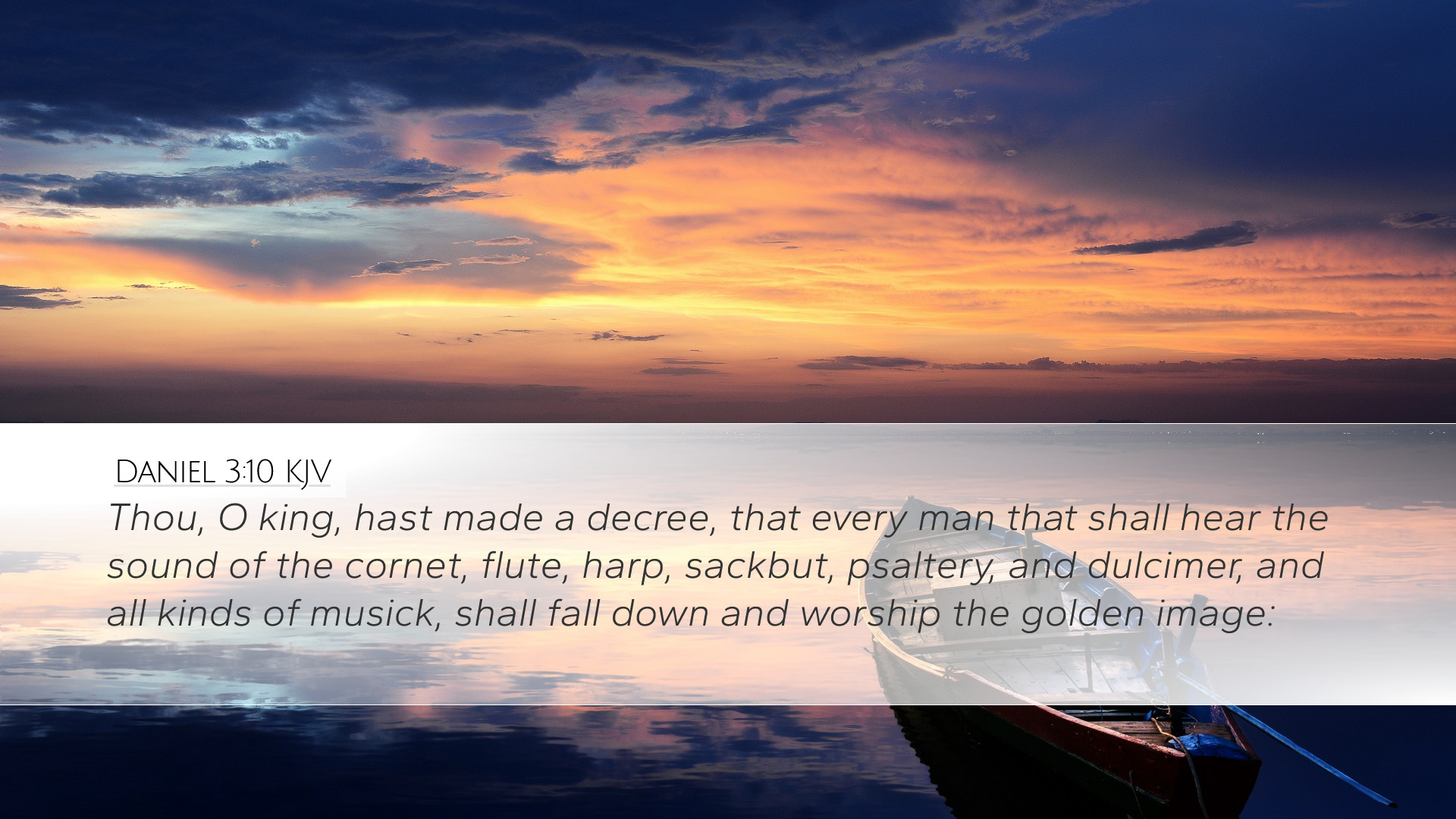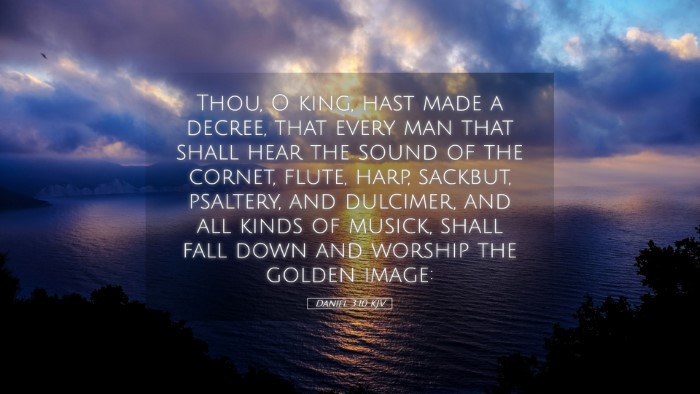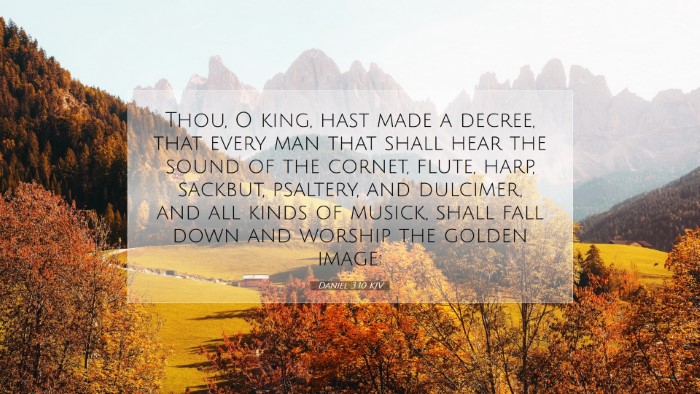Commentary on Daniel 3:10
Daniel 3:10 states: "Thou, O king, hast made a decree, that every man that shall hear the sound of the cornet, flute, harps, sackbut, psaltery, and dulcimer, and all kinds of music, shall fall down and worship the golden image." This verse introduces a significant moment in the narrative of Daniel, highlighting themes of obedience, idolatry, and faith under pressure.
Overview of the Context
This decree by King Nebuchadnezzar, as recounted in the book of Daniel, serves as a crucial backdrop to the events that follow. The king has erected a golden image, demanding allegiance from his subjects through a resounding proclamation that marries his authority with an act of worship. The implications of this command resonate well beyond the physical act of bowing; it raises essential theological questions regarding loyalty, identity, and the intersection of faith and politics.
Commentary Insights
Historical and Cultural Context
According to Matthew Henry, the historical context of this decree highlights the cultural pressures exerted upon the Jewish exiles in Babylon. They were in a hostile environment where their beliefs and practices were often challenged. This decree placed them in a position of potential compromise, showing the intensity of Nebuchadnezzar's desire to unify his kingdom under a single, towering ideology.
The Nature of the Decree
Albert Barnes emphasizes the nature of the decree itself. This command was not simply about obedience to a human authority but was intertwined with the recognition of divinity related to the image. The sound of musical instruments signified a moment of worship, a sensory cue that was designed to invoke immediate compliance from the subjects of the king without critical reflection. This shows a pervading tactic in governance—using cultural expressions to enforce political ideology.
Theological Implications
Adam Clarke digs deeper into the theological implications of this decree. By obliging worship to an idol, Nebuchadnezzar challenges the very core of the Hebrew faith, which emphasizes monotheism and the worship of Yahweh alone. The decree thus sets the stage for a confrontation between the true God and false deities, echoing themes present throughout the Old Testament narratives. This contrast raises profound questions for believers regarding fidelity to God versus conformity to societal demands.
Responses to the Decree
As the narrative progresses, it becomes evident that the decree incited profound responses from the faithful. Shadrach, Meshach, and Abednego stand as archetypes of unwavering faith in God, choosing to defy the king's command rather than compromise their beliefs.
Faith vs. Authority
The response of these three men signifies a vital theological position—that true faith often requires standing against temporal authorities when they contradict divine mandates. Henry observes that their resolve came from deep convictions rooted in their understanding of God's law and character. The tension between earthly authority and divine command serves as a critical lesson for all believers: maintaining integrity in faith amidst external pressures.
Lessons for Today
This narrative in Daniel 3:10 offers several poignant lessons applicable for contemporary believers:
- The Hazard of Compromise: Just as the decree sought to bind individuals to conformity, modern believers must be vigilant about cultural influences that threaten to dilute their faith.
- God's Sovereignty: The story reinforces the belief that God remains sovereign over earthly rulers and their edicts. Even during tests of faith, God’s presence can bring comfort and deliverance.
- Faithfulness in Trials: The bold stance of Shadrach, Meshach, and Abednego illustrates the necessity of faithfulness in trials, showcasing the importance of community support and accountability among believers.
Conclusion
Daniel 3:10 serves as a fork in the road for the faithful, confronting the challenges posed by authority and the temptation toward idolatry. The combined insights of Matthew Henry, Albert Barnes, and Adam Clarke allow us to grasp the richness of this passage, moving beyond a mere historical account to uncover profound theological implications relevant to pastors, students, theologians, and scholars alike. In a world still rife with pressures to conform, this passage encourages a radical commitment to worshipping the one true God amidst the cacophony of competing voices.


